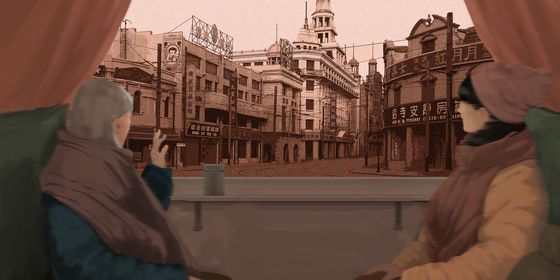Didn’t see it? Didn’t read it? Didn’t hear about it? Fake it.
Recently, all my friends started talking about Harry Potter—again. That’s really a bad news for me; I’m not a fan. I haven’t seen the movies, and I didn’t read any of the books. So, obviously, as they bang on about imaginary children and their amazing magic, I feel a trifle isolated. The adult thing to do would be to sit there and wait until a topic of interest to me pops up in conversation or perhaps just learn more about the interests of my friends, but no one does that. As they natter on incessantly all I really want to say is “Pay attention to me!” In a situation like this, you must pacify the mob mentality in your head with fake ideas and opinions—become the social animal, particularly, the lemming. But, it takes a bit of skill to master this delicate art in Chinese.
Let’s take Harry Potter and the various Potterphiles as our first example. So, you didn’t watch the movie or read the books, but, obviously, you know the films were adapted from the books. This versatile nugget should be of use:
I don’t think the movie is as good as the novel.
Wǒ juéde diànyǐng méiyǒu yuánzhù xiǎoshuō hǎokàn.
我觉得电影没有原著小说好看。
Ah, the conversational equivalent of a garnish next to a steak. It’s very safe. Face it, no true fan of any genre would honestly choose the films over the books. Of course, you can’t exactly add much more than this to the conversation, so be astute and let the herd give you some clues.
A: I am a fan of the novels but didn’t watch the movies. How did you like the adaptation?
Wǒ shì gè yuánzhùdǎng, diànyǐng hái méikàn. Gǎibiān de zěnmeyàng?
我是个原著党,电影还没看。改编得怎么样?
B: It’s not bad. But they added a new romantic role to the story. I think it’s a little boring.
Wǒ juéde hái búcuò. Dànshì xīn jiāle yí gè juésè fùzé tán liàn’ài, gǎnjué yǒudiǎnr wúliáo.
我觉得还不错。但是新加了一个角色负责谈恋爱,感觉有点儿无聊。
A: Oh, they did that again. Why do directors love romance so much?
Ò, yòu lài le. Dǎoyǎn zěnme nàme xǐhuān pāi gǎnqíngxì ne?
哦,又来了。导演怎么那么喜欢拍感情戏呢?
In some cases, it is just an original movie, so you have to be smart enough to swerve the conversation—into a tree if necessary. The best fodder for this is usually just talking about the actors and actresses. Even basic knowledge of their appearance will steer you through the conversation.
A: Harry Potter (Daniel Radcliffe) didn’t age very well.
Hālǐ Bōtè zhǎngdà zhīhòu jiù méiyǒu yǐqián hǎokàn le.
哈利波特长大之后就没有以前好看了。
B: Yes! What a pity!
Shì de! Duō kěxī a!
是的!多可惜啊!
A:But Hermione (Emma Watson) is getting prettier all the time.
Dànshì Hèmǐn què yuè lái yuè měi le!
但是赫敏却越来越美了!
Have a little common sense and try to steer it onto their careers rather than their franchise, that should get you out of the mess.
Another good trick is to talk about the acting, because no one knows anything about it. Some names just scream bad acting and be sure to know them when your doubter brings up your lack of qualifications on the subject.
A: They said Yang Mi’s acting was better in this movie, but I still don’t think she’s good.
Dàjiā dōu shuō Yáng Mì zài zhè bù diànyǐng lǐ de yǎnjì bǐ yǐqián hǎo, dàn wǒ háishi juéde tā bù zěnmeyàng.
大家都说杨幂在这部电影里的演技比以前好,但我还是觉得她不怎么样。
B: Really? I thought she was pretty good this time.
Zhēn de ma? Wǒ juéde tā zhè cì yǎnde búcuò a.
真的吗?我觉得她这次演得不错啊。
A: I just don’t like the way she speaks the lines.
Wǒ bù xǐhuān tā shuō táicí de fāngshì.
我不喜欢她说台词的方式。
B:Well, maybe you are prejudiced against her.
Nǐ duì tā yǒu piānjiàn ba?
你对她有偏见吧?
A: Maybe, but I admit that she is very beautiful.
Kěnéng shì. Dànshì wǒ chéngrèn tā hěn piàoliang.
可能是。但是我承认她很漂亮。
Don’t worry about offending a true fan. Even their crazed fans usually won’t insist on their acting skills being praised. But if you don’t want to be mean, you can also go in the opposite direction—find some names that can always be praised. Maybe they’re not as well-known, but it shows that you have good taste.
Talking about the director is another useful strategy. You can give a pretty standard comment for most Chinese directors: his new stuff isn’t as good. In most cases, that’s true. And at the same time, a mood of nostalgia is fostered. If you can remember some basic information and representative works from those famous directors, it can be really helpful.
B: How did you like Chen Kaige’s new movie?
Nǐ juéde Chén Kǎigē de xīnpiānr zěnme yàng?
你觉得陈凯歌的新片儿怎么样?
A: I don’t think it was very good. After watching it I couldn’t believe that Farewell to My Concubine was also his film.
Wǒ rènwéi bútàihǎo. Kànwán zhīhòu wǒ jiǎnzhí bùgǎn xiāngxìn 《Bàwáng Biéjī》yěshì tā pāi de le.
我认为不太好。看完之后我简直不敢相信《霸王别姬》也是他拍的了。
B: You’re right. It really doesn’t compare to that. It seems that his talent is running out.
Nǐ shuō de duì. Zhè bù quèshí bùnéng gēn nà bùxiāngbǐ. Tā sìhù jiāngláng cáijìn le.
你说得对。这部确实不能跟那部相比。他似乎江郎才尽了。
You can prepare some specific comments for different directors. For Zhang Yimou, you can say, “The composition of picture was really nice, but the storytelling was not very good”; for Feng Xiaogang, it could be, “I don’t know why his recent works are not as interesting as his New Year movies”; and as for Ang Lee, you can relax and say “Lee never disappoints me, except for the Hulk movie which was a steaming pile of garbage.”
These comments of course aren’t 100 percent fact (except for the Hulk comment which was, again, actual garbage), but hey, it’s just your opinion.
Talking about quality is kind of risky. But if the movie is popular, you will definitely hear some voices around you and you can adapt them into your own views. Common sense dictates that criticism is always justified in certain areas—such as the special effects.
Chinese has a wonderful phrase for this: five-mao special effects (五毛特效), frequently used to describe cheap, embarrassing special effects befitting the half yuan note.
A: Terrible! These endless five-mao special effects!
Tài kěpà le! Méi wán méi liǎo de wǔ máo tèxiào!
太可怕了!没完没了的五毛特效!
B: Calm down! You should be used to it!
Lěngjìng! Nǐ yīnggāi dōu xíguàn le!
冷静!你应该都习惯了!
A: Are they too poor to make something good?
Tāmen zhēn qióng chéng zhèyàng ma?
他们真穷成这样吗?
If you want to sound more like an expert, try to find somebody to blame. SAPPRFT is a perfect scapegoat for pretty much any criticism, though in some cases the cersonship is really not the reason for a poor quality movie (though it doesn’t exactly help anyone).
A: The plot could flow more naturally if they didn’t need to worry about passing the SAPPRFT review.
Rúguǒ búshì pà tōng bú guò shěnchá, diànyǐng de qíngjié kěnéng huì gèng zìrán.
如果不是怕通不过审查,电影的情节可能会更自然。
B: Yeah, they must have cut a few scenes.
Shì de, tāmen yídìng jiǎndiàole jǐ gè chǎngjǐng.
是的,他们一定剪掉了几个场景。
Let’s face it, you’re never going to get into a deep discussion about a book you haven’t read or a movie you haven’t seen. Please keep in mind that the less you say the safer you are. Or, perhaps, you could just face the pop culture music and admit: “Oh, I haven’t seen it.”












